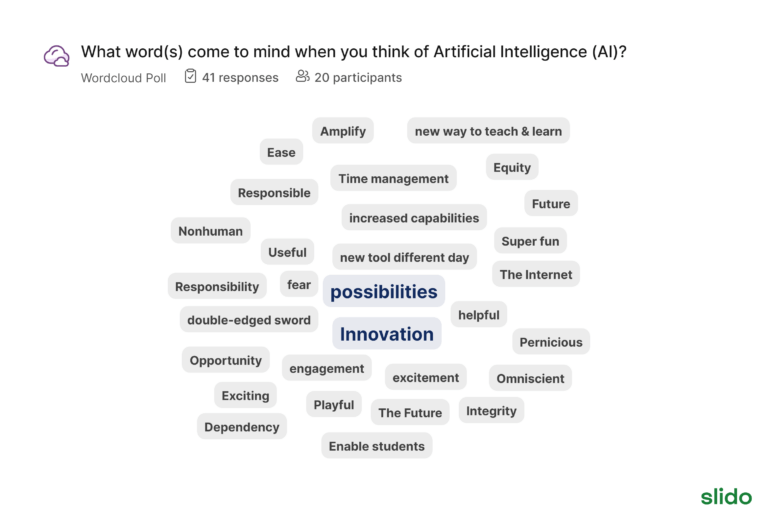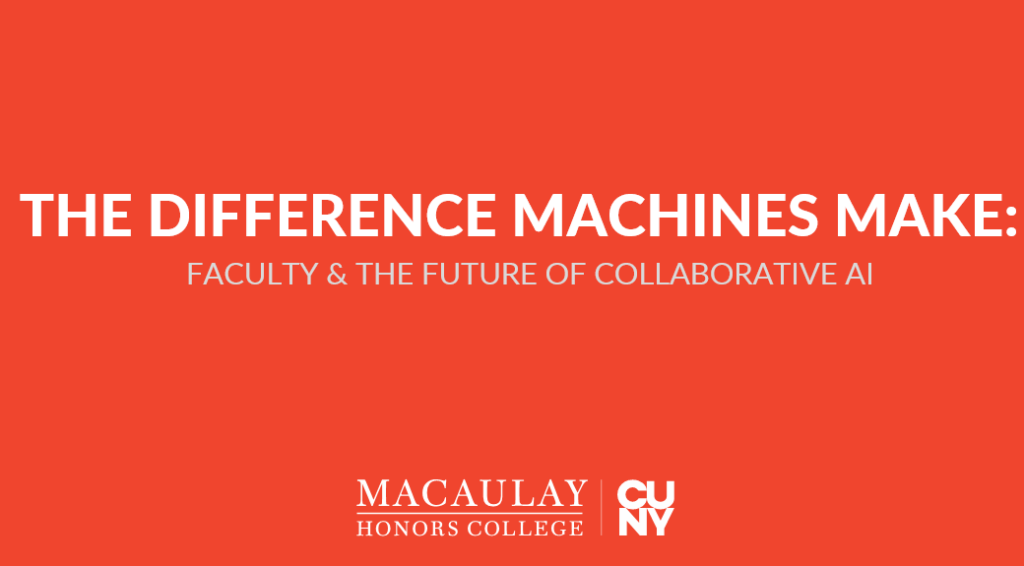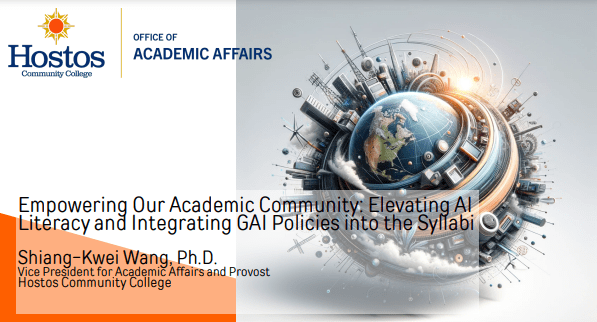Artificial Intelligence in Academia
On March 1, 2024, Queensborough Community College (QCC), LaGuardia Community College (LAGCC), and Queens College hosted the 10th Annual Faculty Development Retreat at the QCC Campus in Queens, New York. This in-person event focused on Artificial Intelligence (AI) in Academia, and offered insights into academic concerns and solutions, and AI literacy for faculty and students.
Read on to learn more about this informative and collaborative event, including information about the panel discussions, links to presentations, learnings and outcomes, and next steps!
Agenda
The eventful faculty retreat hosted experienced keynote speakers and panelists to provide a variety of insights and expertise. Click here to review the 2024 Faculty Development Retreat Flyer, or review the Program Overview below:
Dr. Dara Byrne, Dean of William E. Macaulay Honors College (CUNY).
Panelists: Dr. Guozhen An, QCC; Dr. Scott Litroff, QCC; Dr. Lilla Toke, LAGCC; Dr. Sumaya Villanueva, John Jay College of Criminal Justice, Dr. Esma Yildirim, QCC
Moderator: Dr. Forough Ghahramani, NJEdge, Inc.
Dr. Shiang-Kwei Wang, Vice President for Academic Affairs and Provost at Hostos Community College.
Panelists: Dr. Milena Cuellar, LAGCC; Dr. Yusuf Danisman, QCC; Dr. Ruru Rusmin, CUNY SPS, Dr. Rob McAlear, QCC
Moderator: Ms. Florence D. Hudson, Columbia University
Slides & Recordings
Find comprehensive slides and recordings below of the keynote speeches and panel discussions to hear from educators, industry members, and non-profit leaders as they discuss the role of artificial intelligence in academia.
The Difference Machines Make: Faculty & The Future of Collaborative AI
by Dr. Dara Byrne
Empowering Our Academic Community: Elevating AI Literacy and Integrating GAI Policies into the Syllabi
by Dr. Shiang-Kwei Wang
Resources
Teach@CUNY AI Toolkit – This toolkit offers guidelines and resources to help instructors support students as we all learn to navigate a world increasingly awash in AI.
- Teaching with AI – OpenAI released a guide for teachers using ChatGPT in their classroom—including suggested prompts, an explanation of how ChatGPT works and its limitations, the efficacy of AI detectors, and bias.
Syllabi Policies for AI Generative Tools – This resource was created for the purposes of sharing and helping other instructors see the range of policies available by other educators to help in the development of their own for navigating AI-Generative Tools.
ACUE’s AI Quick Study Series – The AI Quick Study Series features a collection of four high-quality Quick Study courses that equip educators with the foundational knowledge and skills needed to efficiently utilize AI.
JobsFirstNYC – As AI rapidly changes workforce and education, JobsFirstNYC pays special attention to policies and practices that ensure young adults can harness these emerging technologies to advance economic mobility, while guarding against potential dangers.
WAC Clearinghouse – What do teachers who assign writing need to know about AI text generators? How should we change our pedagogical practices, given the recent advances in AI Large Language Models (LLMs) such as OpenAI’s ChatGPT?
Proposal of Usage Guidelines for AI Generative Tools at CU (College Unbound) – These guidelines were created and reviewed by College Unbound students in 2023 with the support of Lance Eaton, Director of Faculty Development & Innovation.
Framing Generative AI in Education with the GenAI Intent and Orientation Model – The proposed model seeks to assist instructors and learners with a framing lens for how GenAI might be useful in educational settings.
Generative AI and Postsecondary Instructional Practices: Findings from a National Survey of Instructors – Understanding how instructors are (or are not) using generative AI in their classrooms is vital because most college and university guidelines leave decision making about how, when, and if generative AI use is permitted to the discretion of individual instructors.
Have an additional resource discussing artificial intelligence in academia? Email contact@nebigdatahub.com and we’ll review the recommended resource!
Outcomes
The participants at the Artificial Intelligence in Academia event submitted their input to this word cloud during the discussion. The attendees agreed that the use of artificial intelligence tools should come with a sense of responsibility and can lead to many possibilities and innovations.

Stay Connected with Us
Email us at nsdc@nebigdatahub.org with any inquiries or questions.
Some ways to stay connected with the NSDC community:
- Join our Slack channel
- Follow us on Twitter, Instagram, or LinkedIn
- Subscribe to the Northeast Hub YouTube channel
- Sign up for our NSDC mailing list
- Check out the REAL Volunteer Program for more collaboration opportunities
- Register to Start/Join an NSDC Chapter
- Register for the next NSDC Career Panel and Q&A webinar


